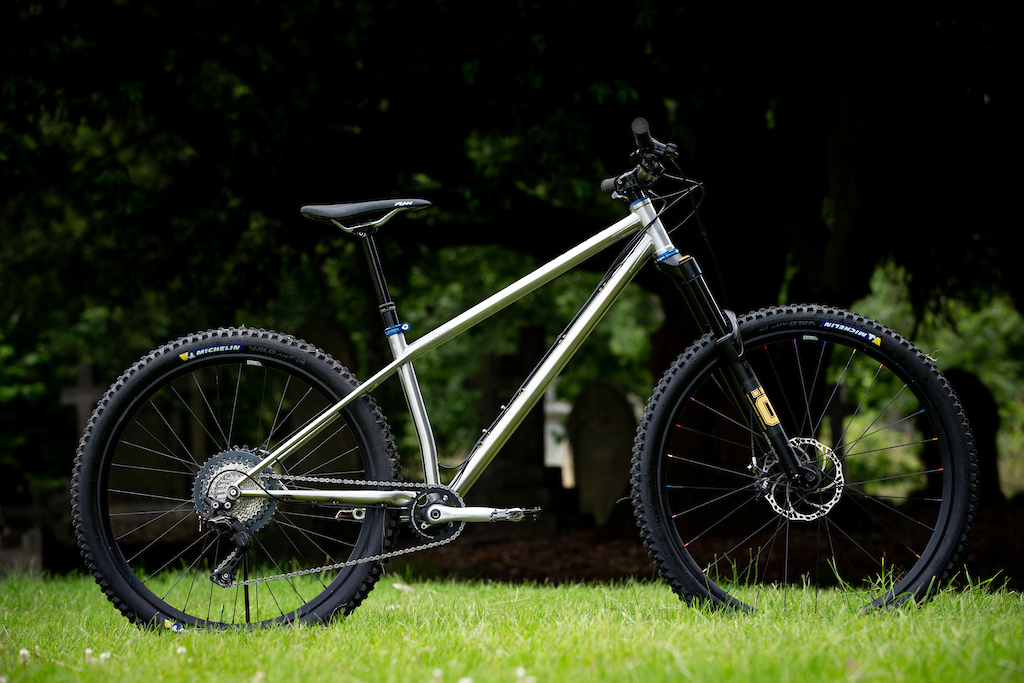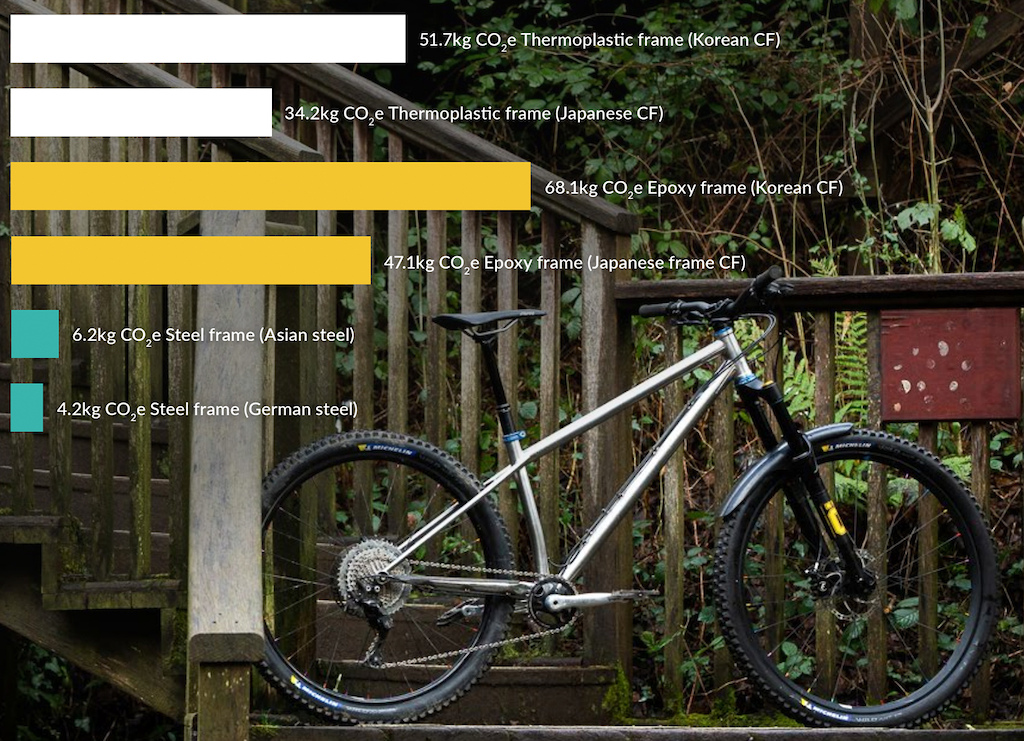Jul 25, 2022
by Ed Spratt

Starling has joined the growing list of companies providing research
into its environmental impact as it launches its first report.
The headline-grabbing statistic from the report is that carbon fibre frame production produces about 16 times the CO2 emissions as steel frame production. To help Starling with this portion of the report, the National Composite Centre (NCC) made a comparison between steel, thermoplastic carbon composite and epoxy carbon composite. It is interesting to note that aluminum was not included in these statistics. Using our own armchair math from Trek's report last year we found that a carbon Trek frame had around three times the emission of alloy.
In the investigation, the NCC found a German steel frame produces 4.2kg CO2e and an Asian steel frame sees a slight increase at 6.2kg CO2e. For a carbon epoxy frame, these figures jump significantly to 68.1kg CO2e for a frame made from Korean fibres or 47.1kg CO2e for Japanese fibres. Thermoplastic frames see a slight reduction but still high numbers with 51.7kg CO2e for Korean fibres and 34.2 CO2e for Japanese ones.

Of course frame, material alone isn't only the big contributor to environmental damage. Just like last year's Trek report Starling's report also looked into the impact of shipping bike parts. Starling's report states that air freight produces 500g CO2e per km per kg, road transport at 60-150g per km per kg, and sea freight only 10-40g per km per kg. Starling does state in the report that its greatest impact is air freighting and it needs to find ways to reduce this.
Interestingly, looking at the emissions from transportation, a steel frame shipped by air could be far worse than a carbon frame shipped by sea freight. While the frame material can clearly make a difference in emissions, I think the biggest takeaway from Starling's report should be the impacts of the method in which bikes are transported. Is the speed of air freight really worth the extra environmental cost?
With the release of the report, brand owner Joe McEwan said: "A small number of brands are taking environmental impact seriously right now, but many just don't seem to acknowledge it. Our products encourage people to spend time in nature; to ignore our impact on the environment just doesn't sit right. This process is the first step in helping us understand how sustainably we operate as a business and what we need to do to improve.
"We’ve learned a lot from this process but in many cases, the answers aren’t straightforward. We’ve identified areas for improvement and now we need to find out how to make those changes."
As with all reports on the environment in the bike industry, it's worth adding that the best way to help the planet is to stick with what you currently ride now.
You can read the full report here.
No comments:
Post a Comment